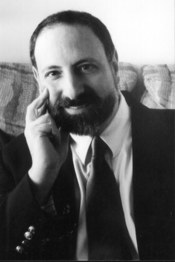
“Every hour you spend writing is an hour not spent fretting about your writing.” – Dennis Palumbo, Writing from the Inside Out.
How much do you “fret” about your writing? Your marketing? What helps you out of it?

I don’t know about you, but I’m a sucker for motivational quotes and affirmations. I find inspiration in sourcing words of wisdom, copying them, and pasting them into my scrapbook which I keep on top of my desk. I also have a lot of little yellow Post-Its with scribbles of sensible sayings stuck all around.
I have three daily affirmations that I faithfully read every morning. They remind me of my overall place in existence and how fast time goes by. They’re words from the Stoics or at least those who have Stoic-like attitudes. Allow me to open my book and share some of what I’ve collected.
“Contempt for failure.”
“Did I show up dressed today?”
“Memento Mori” ~Marcus Aurelius
“Ya gotta wanna.” ~Jimmy Pattison
“To understand is to know what to do.”
“Focus. Cut the noise. Double the results.”
“Invest the Time. Do the work. Tell the truth.”
“This, too, shall pass away.” ~Abraham Lincoln
“Overcome resistance. Trust the muse.” ~Stephen King
“Three common traits of winners. Desire. Determination. Confidence.”
“You don’t really understand something until you can build it.” ~Richard Feynman
“If you do what everyone else is doing, you shouldn’t be surprised to get the same results. Different outcomes come from doing things differently.”
“The long game wins come from repeatedly doing hard things today that make tomorrow easier.”
“Let us prepare our minds as if we’d come to the very end of life…the one who puts the finishing touches on their life each day is never short of time.” ~Seneca
“Compound interest is the most powerful force in the universe. It’s the dogged, incremental, constant progress over a very long time.” ~Albert Einstein
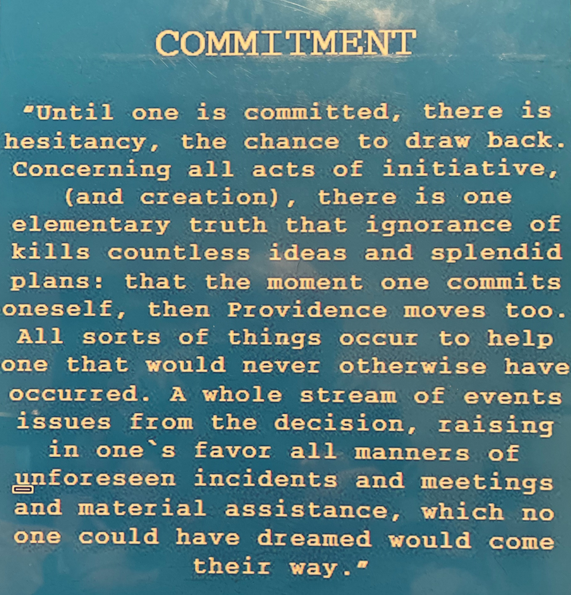

“There are those who watch things happen, those who wonder what happened, and those who make things happen. Strive to be one of those who make things happen. If you show others what you can do, they will respect you far more than if you had simply told them what you’d done. Anyone can quarrel with words, but actions speak for themselves.” ~Tommy Lasorda
“Failure seems to be nature’s plan for preparing us for great responsibilities. If everything we attempted in life were achieved with a minimum of effort and came out exactly as planned, how little we would learn—and how boring life would be! And how arrogant we would become if we succeeded at everything we attempted. Failure allows us to develop the essential quality of humility. It is not easy—when you are the person experiencing failure—to accept it philosophically, serene in the knowledge that this is one of life’s great learning experiences. But it is. Nature’s ways are not always easily understood, but they are repetitive and therefore predictable. You can be absolutely certain that when you feel you are being most unfairly tested, you are being prepared for great achievement.”” ~Napoleon Hill
“I believe that life operates at two levels. The higher level if the muse level—the level of your calling. The lower level is our material plane. On that plane is the force I call Resistance with a capital R. That’s there to stop us from reaching the higher level. The purpose of discipline is that discipline is what takes you to that higher level. That’s why you have to have it—discipline. You can’t wish your way to it. You can’t chant your way there. You can’t—that book The Secret—vibe or manifest your way there. The law of attraction is bullshit. It’s not going to get you there. The only way you get there is through hard and disciplined work. You got to punch your ticket and pay the price.” ~Steven Pressfield
“Doing your best isn’t about the result. You know you did your best before you show up. Over the long term, the long game, the average person who constantly puts themselves in a good position beats the genius who puts themselves in a poor position. And the best way to put yourself in a good position is with good preparation.”
Impossible is just a big word thrown around by small men who find it easier to live in a world they’ve been given than to explore the power they have to change it. Impossible is not a fact. It’s an opinion. Impossible is not a declaration. It’s a dare. Impossible is potential. Impossible is temporary. Impossible is nothing.” ~Muhammad Ali
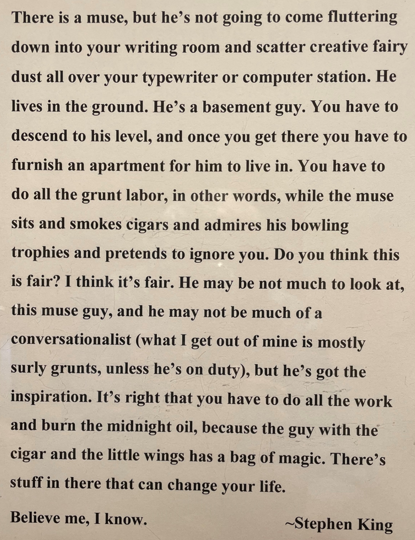
“One of the biggest keys to success at anything is believing you can figure it out as you go along. A lot of people won’t start until they figure it out. And because most hard things can’t be figured out in advance, they never start.” ~Richard Feynman
“Any dominating idea, plan, or purpose held in the conscious mind through constant repetitive thought and emotionalized by the subconscious and acted upon by whatever natural and logical means may be available.” ~Napoleon Hill
“Ninety percent of success can be boiled down to consistently doing the obvious thing for an uncommonly long period of time without convincing yourself that you’re smarter than you are.”
“The Formula: The courage to start. The discipline to focus. The confidence to figure it out. The patience to know progress is not always visible. The persistence to keep going, even on the bad days.”
“Success is that place in the road where preparation and opportunity meet, but too few people recognize it because too often it comes disguised as hard work.”
“If you’re the smartest person in the room, you’re in the wrong room.” ~Jordan Peterson
“Anyone can make the simple complicated. Creativity is making the complicated simple.”
“Pro golfers have learned to miss their shots by narrower margins than amateurs.”
“Avoiding stupidity is easier than seeking brilliance.” ~Charlie Munger
“Being successful is easy. Staying successful is hard.”
“An ounce of action is worth a ton of theory.”
What about you Kill Zoners? Do any of these clips resonate with you? How about sharing one, two, three, or more of your own?
We talk about treating the process of writing as if it were a job a job, we talk about quotas, we talk about pressing through to completion on a project. As November approaches, bringing with it the stress of NaNoWriMo to compete with the other stresses of what for many is the most stressful time of year, some of you will be pounding your fingers bloody on the keyboard in effort to produce the 50,000 words that Club Nano has declared to be the goal of the 30-day writing spree.
What we don’t talk about very much is the need to enjoy the ride. It’s important to set goals and achieve them, but it’s also important to cut yourself a break and realize that life happens. If you’re adhering to the adage to treat writing as if it were a job, remember that most desk jobs bring the perquisites of sick leave and vacation time. Meeting a self-imposed deadline is nowhere near as important as attending your kid’s soccer game or giving the puppy a half hour of Frisbee frolic.
If you’re not under a legal contract to produce a work by a date certain, then a date approximate is a fine substitute. Yes, it’s important to plow through the muddled middle to complete your project, but if your February 1 deadline slips to March 15, so what? If you look back on the week and you find that you only wrote 300 words–or no words at all–of your 7,500-word goal, the Earth will remain on its axis. In fact, the world will be a better place if those squandered words paid for a smile from a family member.
I’m not suggesting laziness or sloth. I’m suggesting balance.
Fifteen years ago, more or less, I sat on a panel at Magna Cum Murder in Muncie, Indiana, when the rookie writer to my left–a practicing psychologist, no less–told this room full of aspiring scribes that in order to succeed in the publishing business, you have to be willing to sacrifice everything. Specifically, she spoke of missing family events and vacations. Failure awaited any writer who looks away from their publishing goals even for a moment. When she was done, every molecule of happiness had disappeared from the room as the newbies furiously took notes.
Mine was the next turn to speak, and I started with, “For God’s sake, it’s only a story. We’re not curing cancer here, we’re making stuff up and playing with our imaginary friends. It’s not worth sacrificing any of that. The instant that make believe feels more important than real-life relationships is the instant you need to stop writing and re-evaluate your choices.”
It’s no secret that creative types frequently eat shotguns and down piles of pills. I can’t speak to the reasons behind that, but damaged relationships are often contributing factors. If you’re a spouse, you have a commitment to the relationship you chose. If you’re a parent, you have a commitment to a human being you created. Those come first. Hard stop.
If you’re a teenager or young adult, you have an obligation to yourself to live more of your life out in the word than inside your head. Collect experiences that will serve your writing well into the future.
When you do sit down to write, enjoy the experience and celebrate what you accomplished. Don’t get distracted by what you didn’t do on the page, and instead concentrate on what you did do in the world.
Paragraphing is a way of dramatization, as the look of a poem on a page is dramatic; where to break lines, where to end sentences. — Joyce Carol Oates.
By PJ Parrish
Yesterday, Sue posted her critique of a First Page submission. Click here to review. On first read, I thought it was pretty good but something about it was bugging me. Then I just looked at it instead of reading it. It hit me that the paragraphing wasn’t quite right.
Paragraphing? Who cares about paragraphing? You just hit enter when it feels right, right? Nope. Proper paragraphing is one of the most underrated tools in your writer’s box. So allow me to wander into the weeds today and talk a little inside baseball. (I worked hard on that mixed metaphor, by the way)
Two main problems with the submission yesterday: The writer had made the common mistake of burying thoughts and dialogue within narrative.
Second problem: All the paragraphs are about the same length. Why is that a problem? Because it goes to pacing and rhythm. No variation in paragraphs is boring to the eye and that translates to boring for the reader’s imagination. But if you learn to master the fine but subtle art of judicious paragraphing, you can inject interest and even tension into your story.
Let’s address problem one first. This opening paragraph is essentially narrative. But inserted within that is both dialogue and thoughts. Here’s the paragraph:
Arizona Powers slammed her palm into the office wall, ignoring the stinging sensation. Unbelievable. “Are you kidding me? I’m not doing that. I’m a federal agent, not a babysitter.” Her boss had clearly lost his mind. She spun on her hiking shoe, locking eyes with Senior Special Agent Matt Updike. Her fingers fidgeted with a button on her shirt. I deserve a second chance.
Dialogue and thoughts are ACTION. They deserve to be lifted out of narrative and given lines of their own so the reader can emotionally latch onto them, and by extension, your character. This opening paragraph would be more effective (and more interesting to the eye) if it were deconstructed with better paragraphing:
Arizona Powers slammed her palm into the office wall, ignoring the stinging sensation, and stared hard at her boss.
“Are you kidding me? I’m not doing that. I’m a federal agent, not a babysitter.”
Matt Updike shoved his chair backward, rose and closed the distance between them in two strides.
“I’m not kidding. You are doing this,” he said. “You don’t have a choice.”
She could smell his stale coffee breath and see a vein bulging in his neck, but she resisted the urge to step back. Her boss had clearly lost his mind. But she wasn’t going to take this. She deserved a second chance.
See the difference? The drama of the scene is enhanced by allowing the thoughts and dialogue to stand out — all by simple paragraphing. Here’s something interesting: The rewrite is LONGER but it reads FASTER. Why? Because the reader doesn’t need to ferret out the important thoughts and dialogue. It’s your job, as the writer, to mine out the nuggets for them.
Now let’s consider the basic question of length of paragraphs and how that affects your reader. How long should your paragraphs be? Sounds like a dumb question, but it’s not. You need to consider it deeply.
About five years ago, I did a very long post on paragraphing with a lot of examples, Click here if you want to review. But let me re-quote this from Ronald Tobias’s The Elements of Fiction Writing: Theme & Strategy,
The rhythm of action and character is controlled by the rhythm of your sentences. You can alter mood, increase or decrease tension, and pace the action by the number of words you put in a sentence. And because sentences create patterns, the cumulative effect of your sentences has a larger overall effect on the work itself. Short sentences are more dramatic; long sentences are calmer by nature and tend to be more explanatory or descriptive. If your writing a tense scene and use long sentences [me here: or long paragraphs], you may be working against yourself.
I often liken writing to music. Composers use punctuation to speed up or slow down pace and musicians use types of “articulation” to enhance whatever mood they are going for — intense? dangerous? romantic? thoughtful?
Good writers use similar tools — punctuation, length of sentences and paragraphs (short and choppy or longer and measured?) to create an emotional response in their readers. The best writers understand this not only creates emotion, it provides variety on each page and over the whole book.
Pacing is not just aural, it’s visual. How your writing LOOKS on the page is important. Which brings us back to the paragraph. How many you use per page, and how long or short your paragraphs are should be conscious choices you make. Here is the same thought, expressed two different ways:
Fragments, the length of sentences, punctuation, and how often you paragraph can all work to give a particular pace. If you really think about, you’ll realize that you can use sentence and paragraph structure to create a feeling of speed or slowness, depending on what kind of emotional response you want to induce in your reader.
Okay, that gets my point across, right? But what if I structured the same thought this way:
Think of it! You can move a reader through a story fast. Their hearts will race!
Or you can slow them down and make them use their heads.
It’s all in how your sentences look on the page.
The first is measured, more academic in pace, meant to make you slow down and digest the thought. The second is lively and urgent, making you anticipate an important climax-point. Neither is correct. They are just two different styles of pacing, word choice, sentence length and paragraphing to different affect.
I think most of us here, being in the crime business, know we shouldn’t write a lot of long paragraphs. You can get away with some, especially in description. But these days, too many long paragraphs per page looks “old-fashioned” or worse, “textbook.” It worked for Dickens and even for a stylist like Delillo. Not so much for the rest of us today.
Are any of you out there art folks or designers? Then you understand the value of “white space” or “negative space.” Simply put, negative space is the area around and between a subject. It appears in all drawings, paintings and photographs. The “subject” below is enhanced by the negative space surroudning him. (Notice, too, the crop lines that make for an even more compelling negative/positive composition!)

Paragraphing provides white space. Don’t believe me? Go read Elmore Leonard.
Ray Bradbury said that each paragraph is a mini-scene and when you hit ENTER you are helping your reader enter a new scene, thought or action. I’ll leave you with one more example. It’s from one of my favorite opening pages from a novel.
It was a pleasure to burn.
It was a special pleasure to see things eaten, to see things blackened and changed. With the brass nozzle in his fists, with this great python spitting its venomous kerosene upon the world, the blood pounded in his head, and his hands were the hands of some amazing conductor playing all the symphonies of blazing and burning to bring down the tatters and charcoal ruins of history. With his symbolic helmet numbered 451 on his stolid head, and his eyes all orange flame with the thought of what came next, he flicked the igniter and the house jumped up in a gorging fire that burned the evening sky red and yellow and black. He strode in a swarm of fireflies. He wanted above all, like the old joke, to shove a marshmallow on a stick in the furnace, while the flapping pigeon-winged books died on the porch and lawn of the house. While the books went up in sparkling whirls and blew away on a wind turned dark with burning.
Montag grinned the fierce grin of all men singed and driven back by flame.
That’s the opening to Ray Bradbury’s Fahrenheit 451. I love the way the first line sits there all alone, like a roadside sign that you’re entering hell. Then he gives us this amazing loooong graph with gorgeous imagery and the nonchalance of the unnamed man. And then, a third paragraph — BAM! — he gives us our arsonist-star by name.
Bradbury could have made this all one graph. But no, he chose three. Your turn. Choose wisely when to hit enter.
Let me apologize to the Brave Writer who submitted this first page. A mix-up in communication caused me to think Brian sent this to another TKZer. Sorry! And thank you for your patience. My comments will follow.
***
Title: The Puzzle Within
Genre: Romantic Suspense
Arizona Powers slammed her palm into the office wall, ignoring the stinging sensation. Unbelievable. “Are you kidding me? I’m not doing that. I’m a federal agent, not a babysitter.” Her boss had clearly lost his mind. She spun on her hiking shoe, locking eyes with Senior Special Agent Matt Updike. Her fingers fidgeted with a button on her shirt. I deserve a second chance.
Matt shoved his chair backward, rising with his hands splayed over the glass surface. “I’m not kidding. You are doing this,” he said, angling his bushy eyebrows and closing the distance between them in two steps. “You don’t have a choice.” His hot, stale coffee breath blasted her skin, and a vein in his neck bulged.
Reclining her head to make eye contact with a man nearly a foot taller than herself, Ari wrinkled her nose, crossed her arms, but refused to back down. “You can’t force me to do this. I’ll take it to the top.” All the way to the Director if necessary.
Matt’s energy deflated, a muscle twitching in his cheek. “This assignment came from the top. From the Director himself. The shrink doesn’t believe you’re ready,” he said, placing a warm hand on her shoulder. His expression softened. “Not yet.”
Ari shrugged, knocking his hand away, and stalked to the other side of the room. She rested her hands on a bookshelf, her eyes falling upon the photo of Matt’s smiling family taken at Disneyland last summer. The FBI was her family, and she didn’t need sympathy. She needed her job back. With a sigh, she rotated to face her boss. “But why me? Why isn’t DSS handling this?”
Shouldn’t the Diplomatic Secret Service be handling this problem? They’re responsible for Ambassador Van Sloan and his spoiled daughter, Bianca—the biggest brat in diplomatic circles. Growing up in the consulate with the world at her fingertips and a silver spoon in her mouth, the college student didn’t comprehend the word “no.”
I don’t have time for this. I’ve got cases to solve and missing children to find. A knot formed in her stomach.
Matt cleared his throat and returned to his seat.
Ari’s pulse flickered in her neck. “What aren’t you telling me?” Apprehension tinged her voice.
He swallowed. “DSS is handling it.” His eyes darted to a manila envelope on his desk. “You’re being ‘borrowed’ for the time being.”
***
Let’s first discuss all the things Brave Writer did right.
If we put all these puzzle pieces together, the assumption is something bad happened to Arizona.
Kudos to you, Brave Writer. You’ve worked hard to hone your craft.
Now for some tough love.
The bones of intrigue are there, but it’s overshadowed by too many body cues and random details that add nothing of value. Here are the first two paragraphs with my comments in blue.
Arizona Powers slammed her palm into the office wall, ignoring the stinging sensation. This first line has no context. It’s a reaction without a motivation, or an effect without a cause. If, say, a grizzly bear was advancing on our MC, we wouldn’t first show the MC’s reaction. We’d show the grizzly bear huff or stomp the ground. Then the MC could react. Unbelievable. “Are you kidding me? I’m not doing that. I’m a federal agent, not a babysitter.” Her boss had clearly lost his mind. She spun on her hiking shoe This body cue implies she’s changing directions to leave, yet the rest of the sentence implies she’s entering her boss’s office. When put together, these two body cues cancel each other out and cause confusion., locking eyes with Senior Special Agent Matt Updike. I realize some writers use “locking eyes” but I immediately envision floating eyeballs. “Locking gazes” avoids confusion. But again, without knowing if she’s leaving or entering the office, the scene remains scrambled in this reader’s mind. Her fingers fidgeted with a button on her shirt. And now, she’s fidgeting, which implies nervousness. However, slamming a hand into a wall, locking gazes, and the inner monologue and dialogue all implies anger and/or defiance. Choose one emotion and stick with it. We haven’t even gotten to the second paragraph, and already the MC has experienced a plethora of conflicting emotions. I deserve a second chance.
Matt shoved his chair backward, rising with his hands splayed over the glass surface. Glass surface of what? “I’m not kidding. <- this adds nothing of value, nor does this -> You are doing this,” he said, angling his bushy eyebrows <- I have no idea what this means. Is he consciously angling his bushy eyebrows at something? Doubtful. And if he is, we’ve slipped out of Arizona’s POV. and closing the distance between them in two steps. “You don’t have a choice.” His hot, stale coffee breath blasted her skin Face? Nose? Be specific. ’Course, shoving his chair backward is all you need to portray anger. All these other emotional cues distract from the dialogue. It’s too much. A good exercise for you may be to limit one emotion per character per page. It’ll force you to focus on strengthening the dialogue, inner monologue, and the narrative., and a vein in his neck bulged.
Let’s move on…
What if you started by showing Ari trying to control the diplomat’s reckless daughter (and failing)? Then this whole opener could be threaded through the narrative in a more organic way.
Example:
I didn’t become a federal agent to babysit a diplomat’s brat.
That one line of inner dialogue shows what you’ve conveyed in this first page. Please don’t get discouraged. We’ve all started novels too soon. And many of us continue to learn that lesson over and over and over. I wrote three different openers to my current WIP before I landed on one that worked, and it’ll be my 22nd book.
One last comment…
Because the out-of-control diplomat kid is a familiar trope, you need to work twice as hard to twist it in a way that’s fresh and new. It likens to the alcoholic cop or homicide detective who’s haunted by the cases he couldn’t solve. I can see that you have worked hard on your craft—otherwise I’d be handling you with kid gloves—so I’ll assume you have a fresh take. Which is great. I only bring it up to make you aware. Okay? Now, go write your bestseller. You’ve got the writing chops to do it. 😉
Over to you, TKZers. Please add your thoughtful suggestions for this Brave Writer.
by James Scott Bell
@jamesscottbell
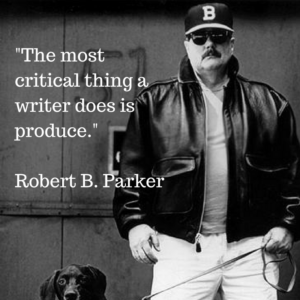 Sometimes it’s just plain hard to write. Like when you’re sick. Or feeling drained from a job. I recently went through a season of this, a mix of some medical stuff and general lethargy. For the first time in 25 years, I found myself missing my weekly quota disturbingly often.
Sometimes it’s just plain hard to write. Like when you’re sick. Or feeling drained from a job. I recently went through a season of this, a mix of some medical stuff and general lethargy. For the first time in 25 years, I found myself missing my weekly quota disturbingly often.
It made me mad. I’ve always tried to stay in the tradition of the great pulp writers, who had to produce or they wouldn’t eat.
Erle Stanley Garner routinely wrote a million words a year.
John D. MacDonald was known as the writer with the red-hot typewriter.
My keyboard was getting cold. So I had to go back and re-establish some disciplines. Here they are:
At night, when I’m always too spent to produce more, I take just a few minutes to think about what I’ll write tomorrow. Hemingway famously said he’d leave off writing midsentence, so he could take off running the next day.
So I think about the scene I’m going to write next. I give it some structure brainstorming: Objective, Obstacles, Outcome.
Then I’ll write one sentence. Just one. And that’s where I start when morning comes. Which brings me to tip #2:
We all know that good, restorative sleep makes a big difference in our daily lives. We also know sleep problems are rife, especially in the anxiety-inducing world we live in.
That’s why there’s a boom in sleep products. The most common ingredient is melatonin. I like to manage my melatonin naturally. I try to get ten to fifteen minutes of sunlight between 11 a.m. and 1 p.m. (good for Vitamin D, too). I also try to keep off the blue light of phone and computer and TV screens before bed. If I do some computer or watch some TV, I wear yellow-tint glasses. This renders color movies or shows a bit, well, yellowish. But I can live—and sleep—with that.
Now here’s JSB’s secret tip for a good night’s sleep: Quercetin. I pop an 800mg tab half an hour before I hit the pillow. I no longer wake up in the middle of the night.
And here is an added benefit: Quercetin is an ionophore. That means it’s a molecule that helps your cells absorb good things, like zinc. Another ionophore is hydroxychloroquine. Remember the suppression of HCQ at the beginning of Covid? Don’t get me started on the political and medical malpractice of that. HCQ, like quercetien, helps the cells absorb zinc which, along with D, is the Praetorian Guard of the immune system.
Thus the adage “An apple a day keeps the doctor away.” Apples are a great source of quercetin. That’s why all those apple-egg-meat eating farmers never got sick.
Well, second thing. First thing is make the coffee. Mrs. B and I spend devotional time together, so I get up earlier and knock out a Nifty 250 (or 350 if I’m going good) before she joins me in the living room. I sometimes do this on my laptop. I used to do it on my beloved AlphaSmart. But Alphie is showing his age lately, so I invested in a very cool Macally wireless keyboard that has a slot for your phone or tablet. I write my words in Google Docs.
Getting a 250 or 350 jump on the day makes hitting the quota so much easier.
I’ll sometimes do some morning pages to get the engine started. This often results in a new idea for a story. [Note: I don’t count morning pages in my quota, unless I end up using some of them in a project.]
I look at 250 word chunks as “writing sprints.” Go fast. Catch my breath. Then sprint some more.
Periodically, I stand and move around, so I’m not on my butt for more than a half hour at a time.
I emphasize the word lightly. I’m not going to labor over things, but just go over the pages to make obvious changes. More often than not, I add new words (which counts toward my quota).
I usually have at least two projects going. My novel is primary, and if I’m going good I push through to the quota. But, like Asimov, if I get to a cul-de-sac I jump over to another project—usually a short story or a piece of nonfiction—and work on that for awhile.
Following this plan, I find myself more easily hitting my daily quota of 1k. I finished typing this at 11:07 a.m. Friday, and my word count is 1754. Now I can look forward to lunch. Hawaiian pizza, anyone? Ha!
What about you? What do you do to stay productive, even if you’re not feeling like it?
I’m one of those people who has written just about anything. Novels, short stories, screenplays, magazine articles, newspaper columns, pyramid style newspaper articles, news releases, and so on.
The one thing I can’t write is a song.
It won’t come. I can’t do it. I sit down with an idea and nothing works. I’m sure it’s partially because I’m trying to include too much information. Good songs are tight, brief, and have an impact.
Before I continue, let’s be clear I’m not talking about bubble gum pop rock lyrics, (baby oh baby hey baby baby humm), or this new so-called country music that’s simply repetition and tailgates, trucks, and partying in a field.
I’m talking about songs that tell a story. That’s what we do, right? Writers want to tell a story, whether it’s a novel, or shorter as a novella, or the traditional short story. This morning I woke up to a new, rain-washed world of clean, cool air and for some reason The Wabash Cannonball came into my head.
This narrative was originally written sometime in the 1880s and is sweeping in scope.
From the great Atlantic ocean
To the wide Pacific shore
To the queen of flowing mountains
For the hills and by the shore
She’s mighty tall and handsome
And she’s known quite well by all
She came down from Birmingham on the Wabash Cannonball
Well now listen to the jingle
To the rumble and the roar
As she glides along the woodland
Through the hills and by the shore
Hear the mighty rush of the engine
And the lonesome hoboes call
No changes can be taken
On the Wabash Cannonball.
Now here’s to daddy Claxton
May his name forever stand
He’ll always be remembered
In the ports throughout the land
His earthly race is over
And the curtain round him falls
We’ll carry him home to Glory
On the Wabash Cannonball Copyright A.P. Carter
Here’s a link to the Roy Acuff version written long ago. The quality has issues, but the story is there.
https://www.youtube.com/watch?v=i435ovKX9aE
This song (I didn’t include the two reprises at the end) tells a story about Daddy Claxton, an engineer, but it’s also filled with descriptions that put the reader in that place, something we all seek do in our writing. Sight, sound, and though the original writer A.P. Carter never mentions the sense of smell, the writing brings smoke, clear mountain air, and the humid odor of any coast in this land.
Another song I use when I’m teaching comes from the late, great Charlie Robison, who recorded The Lights of Loving County, a condensed novel. It’s the age-old story of betrayal, and ultimate justice. I wish I’d written this perfect story complete with a riveting plot, descriptions of our desolate West Texas, and an excellent twist. Loving County is the most sparsely populated county in the country.
Well, I loved a girl
She lived out in Pecos, and pretty as she could be.
And I worked the rigs on out in Odessa
To give her whatever she needs.
But that girl, she run with an oil company bum
‘Cause the diamond was not on her hand.
And he left her soon ‘neath the big loving moon
To go out and X-ray the land.
Now I sit in my car at the New Rainbow Bar downtown,
And the frost on the windshield shines toward the sky
Like a thousand tiny diamonds in the lights of loving county.
Well, l walked in that bar and I drank myself crazy
Thinking about her and that man.
When in walked a woman, looking richer than sin
With ten years worth of work on her hand.
Well, I followed her home and when she was alone
Well, I put my gun to her head,
And I don’t recall what happened next at all
But now that rich woman, she is dead.
Now I drive down the highway
Ten miles from my sweet baby’s arms.
And the moon is so bright it don’t look like night
And the diamond how it sparkles in the lights of Loving County.
But she opened that door and I knelt on the floor
And I put that ring in her hand.
Then she said, “I do” and she’d leave with me soon
To the rigs out in South Alabam’.
Well, I told her to hide that ring there inside
And wait ’til the timing was good,
And I drove back home and I was alone
‘Cause I thought that she understood.
The next night an old friend just called me to wish us both well,
He said, he’d seen her downtown, sashaying around
And her diamond how it sparkled in the lights of Loving County.
Well that sheriff, he found me out wandering
All around El Paso the very next day.
You see, I’d lost my mind on that broken white line
Before I even reached Balmorhea.
Well, now she’s in Fort Worth and she’s just giving birth
To the son of that oil company man.
And they buried that poor old sheriff’s dead wife
With the ring that I stole on her hand.
And sometimes they let me look up at that East Texas sky.
And the rain on the pines, oh Lord, how it shines,
Like my darling’s little diamond in the lights of Loving County.
Copyright, Charlie Robison
https://www.youtube.com/watch?v=uewrSagO-r4
Studying the lyrics of songs is an excellent exercise in creative writing. These artists have distilled the essence of a story into wonderfully crafted bites. Last night the Bride and I fired up our new old-school Marantz stereo and Craig turntable. We’ve returned to our analog roots and listened to old vinyl for hours and absorbed a heartfelt world of music about life, survival, hearbreak, and real country.
The following lines and brief verses are wonderful, descriptive images for the listener.
You don’t know lonely ’til it’s chiseled in stone. Vern Gosden, Chiseled in Stone
She wore red dresses with her black shining hair,
Oh, she had my baby, and caused me to care.
Then coldly she left me to suffer and cry.
She wore red dresses and told such sweet lies.
Dwight Yoakum, She Wore Red Dresses
There’s a burning question afire in my mind, you always had the answers to the ones I couldn’t find. Clint Black and Hayden Nicholas, Where Are You Now
Seeking relief from your memories, I’ve almost Jack Daniels drowned. Ronnie Reynolds and Linda Craig. Recorded by John Anderson, Almost Jack Daniels Drowned.
As I write today, I hope such sentences come to mind, because these are the things that stick with readers.
It’s frustrating that I can’t write songs, but I’m eternally grateful others can.
By Elaine Viets

New words are supposed to be the sign of a living language. In that case, English is not only alive and kicking, it’s dancing barefoot around the room. Recently, Webster added 690 new words to the dictionary. Many are Gen-Z words that have officially entered the language.
Do you use any of these words in your writing? How about your speech?
Beast mode: an extremely aggressive or energetic style or manner that someone (such as an athlete) adopts temporarily (as to overpower an opponent in a fight or competition).
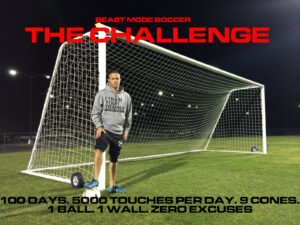
Doomscroll is a verb meaning, “to spend excessive time online scrolling through news or other content that makes one feel sad, anxious, angry, etc.” I expect to do a lot of doomscrolling as the 2024 Presidential election gets closer.

Chef’s kiss is “a gesture of satisfaction or approval made by kissing the fingertips of one hand and then spreading the fingers with an outward motion.” Often used as an interjection.
Here’s an example: “The crab itself deserved a chef’s kiss—not only was it clear that it was good quality crab that had been handled with care, but it also had this mouthwatering consistency that held its integrity until you bit into it. Then it was like a burst of flavor.—Amy Martino.”

Cheffy is an adjective describing the “the characteristic of or befitting a professional chef (as in showiness, complexity or exoticness.
You can’t go online without encountering tiny house. That’s “a small house or mobile home that typically has a floor plan of less than 500 feet and is usually designed for ergonomics and space efficiency.”

Thirst trap is “a photograph (such as a selfie) or video shared for the purpose of attracting attention or desire; also : someone or something that attracts attention or strong desire.” Kim Kardashian and her selfies are the definition of the word.

Girlboss is “an ambitious and successful woman (especially a businesswoman or entrepreneur).” Forbes magazine wrote “But almost every notable girlboss tumbled out of the C-suite in rapid succession in June 2020.”
Really? Girlboss? Did that word escape from the 1950s?
Nope, Webster first noticed it in 2016. That’s one word I’m not planning to use.

GOATED: An adjective meaning, “considered to be the greatest of all time,” Webster said. I think it’s presumptuous, unless you can see into the future.
Zhuzh: To kick it up a notch. Webster credits Queer Eye’s “original fashion guru, Carson Kressley for making zhuzh popular.” This show also brought you metrosexual.
“Zhuzh describes the act of making slight improvements or accents to a wardrobe or look (such as by adding a pocket square, teasing one’s hair, or popping a shirt collar),” Webster says. That’s Carson in the middle of this photo below.

Rizz means “romantic appeal or charm.”
Old words with new definitions.
Doggo. To lie doggo means to hide, but now doggo has been repurposed as slang for dog.

Bingo card: This is not your Aunt Myrtle’s bingo card, the one she played in the church basement. Webster also says it “means a list of possible, expected or likely scenarios.” As Molly Taylor wrote, “I’m pretty sure nobody had ‘global pandemic’ on their bingo cards back in 2016 …”

Hallucination has taken on a new meaning in the computer world. This is how Webster defines it: “a plausible but false or misleading response generated by an artificial intelligence algorithm.”
Webster gives this example: “This type of artificial intelligence we’re talking about can sometimes lead to something we call hallucination,” said Prabhakar Raghavan in an interview . . . “This is then expressed in such a way that a machine delivers a convincing but completely fictitious answer.”
Simp used to be a simple word. It meant someone who’s not too bright. Now it’s sprouted several new meanings.
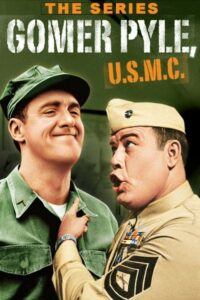
Webster says simp can be informal and often disparaging. “Someone (especially a man) who shows excessive concern, attention, or deference toward a romantic partner or love interest.” Margaret Taylor says a simp is “… multiple videos offering examples of what makes someone a simp, like wearing a nice outfit to school and hoping your crush notices only for them to be absent.—Magdalene Taylor.”
Or, a simp can be someone who “has a marked fondness or desire for something.” Morgan Sung used it this way: “… as a simp for multifunctional appliances, I was enamored off the bat.”
And last but not least, simp can be a rather awkward intransitive verb. Webster gives this example from John James: “A Brazilian influencer has taken simping for the richest man on earth to a new level by getting Elon Musk’s name … tattooed across his forehead.”
Oh, that’s what that is:
Some new definitions give us words we need.
Bracketology is “the practice or study of predicting the outcome of elimination tournaments or competitions especially in NCAA college basketball.”
Vanity card is “the logo of a production company that appears briefly on-screen following the credits for a television show or movie.” Executive producer and writer Chuck Lorre’s vanity cards are famous. Here’s one:
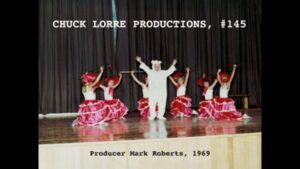
Kayfabe is “the tacit agreement between professional wrestlers and their fans to pretend that overtly staged wrestling events, stories, characters, etc., are genuine.”
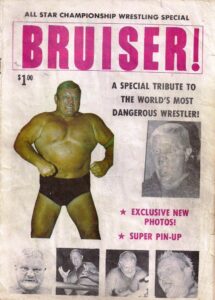
Hah! True wrestling fans know wrestling is real and the rest of the world is kayfabe. The word has been around more than 50 years. Webster mentions “. .. a letter to the sports editor of the Chicago Tribune concerning a fight between Dick the Bruiser and Angelo Poffo is signed ‘Mark Kayfabe,’ a name presumably made up from mark ‘the victim of a con’ and kayfabe.”
Like words and word play? Check out this page at Webster’s dictionary: https://www.merriam-webster.com/wordplay/new-words-in-the-dictionary
You’ll enjoy it. As Webster says, TTYL — Talk to you later.
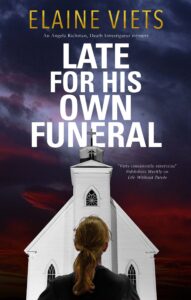
Enjoy hardcover mysteries? LATE FOR HIS OWN FUNERAL, my seventh Angela Richman, death investigator mystery is on sale at Amazon. https://www.amazon.com/gp/product/0727850296/ref=ox_sc_saved_image_2?smid=ATVPDKIKX0DER&psc=1
A Different Conference Experience
Terry Odell
If all has gone well, when you’re reading this, I should have had my first cataract surgery yesterday, so forgive me if I don’t respond to comments. Surgery went very well, so I’m back at the computer.
I attended the Flathead River Writers Conference, where I had the pleasure of meeting fellow TKZ blogger, Debbie Burke. In her post yesterday, she said I’d have pictures to share, so here are a few to start.
I’ll stick in a few more throughout the post.
This was a very different kind of conference for me. My decision to attend was to get away for a few days, meet some new people, and, most importantly, recharge the batteries. I’ve always attended genre-based conferences, and most have been much larger. This one (under 100 attendees) didn’t hit my overload button. Also, to fulfill the battery recharging goal, I arrived two days prior to the opening session. Debbie was generous enough to play tour guide, so I got to see a lot of the area. Including, I must add, places Debbie used in her books. An added perk: she knows where the best rest stops are.
A few highlights for me from the sessions. (Let me point out, this was not a ‘business networking venture’ for me.) John Gilstrap swears that all of the business takes place at the bar. He’d have been disappointed here, because the conference hotel didn’t have a bar. Or a restaurant.
One of the “speakers” Dr. Erika Putnam, a chiropractor/yoga instructor, had everyone participating in stretches and poses designed to counteract the “all day in front of a keyboard” neck, shoulder, and back stiffness. Another was the Montana Poet Laureate, Chris La Tray, a member of the Little Shell Tribe of Chippewa Indians, who gave poignant yet very entertaining talks.
Another highlight was when the two agents in attendance, Zach Honey and Julie Stevenson did cold reads of the first page of anonymously submitted manuscripts. (Sound familiar?) The submissions were read aloud by conference staff, although the agents had hard copies so they could read along.
Honey focuses on representing thrillers, and Stevenson wants literary fiction. Most of the submissions leaned toward the literary end of the spectrum, and I was left cold. I could hear JSB saying “Nothing’s Happening!” Pretty Prose doesn’t do it for me. Their comments were kept short and superficial, but there were one or two submissions they thought they’d want to see more of. I’m sure those authors were thrilled.
Author Mark Sullivan’s talk on day one about his path to success was interesting, but it was his talk on day two that gave me my biggest takeaway. He spoke of the connection between the body and the mind. He suggested that if you’re having trouble finding the emotional center of your character, picture what that character’s body position would be, then get into it yourself. Something to try, for sure.
He did something else I’ve never seen at any other conferences, which was to lead the group in a meditation session. Sue Coletta talked about breathing, and we did similar exercises. He also addressed something that resonated with me. “Too much to do” anxiety. Sullivan pointed out there’s no point in getting upset about something that happened in the past. It’s over and done. Likewise, you can’t fret about what’s in the future. You can only live in the “now.” Do one thing at a time, and wipe out the rest. Looking at a ‘to do’ list of 20 items is daunting. Don’t think about the 20, deal with the one.
This suggestion came in handy when I arrived home and considered everything I had to do. There were the household tasks, the ‘catch up’ tasks, and the ‘get everything done before my cataract surgery’ tasks. Instead of freaking out, I was able to focus on one thing at a time, and the usual knotted stomach wasn’t an issue.
He left us with these words: The universe is in a state of expansion. If you’re in a state of retraction, you’re fighting the universe. Don’t get involved with yourself.
What about you, TKZers? Do you ever need to get away and do something a little different? Was it worth it?
 Available Now
Available Now
Deadly Relations.
Nothing Ever Happens in Mapleton … Until it Does
Gordon Hepler, Mapleton, Colorado’s Police Chief, is called away from a quiet Sunday with his wife to an emergency situation at the home he’s planning to sell. A man has chained himself to the front porch, threatening to set off an explosive.
 Terry Odell is an award-winning author of Mystery and Romantic Suspense, although she prefers to think of them all as “Mysteries with Relationships.”
Terry Odell is an award-winning author of Mystery and Romantic Suspense, although she prefers to think of them all as “Mysteries with Relationships.”